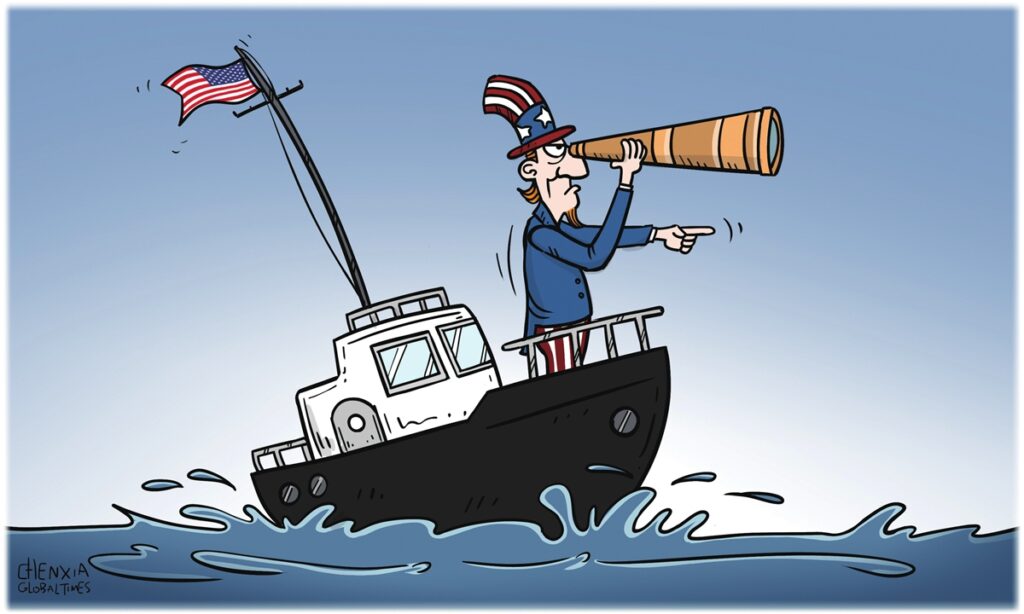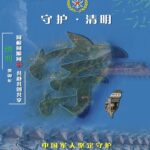The US military will gain access to four new military bases in the Philippines. According to the Philippine government on Monday, three of the four military bases are located on the main island of Luzon, close to the Taiwan island, including a naval base at Cagayan Province’s Santa Ana, which is only about 400 kilometers from Taiwan. And another site is located on Balabac Island, facing the South China Sea.
The day after the Philippines identified the locations, the US Embassy in the Philippines announced that from April 11 to 28, more than 17,600 members of the Armed Forces of the Philippines and the US military will participate in Balikatan 2023, an annual exercise between the two countries and the largest iteration of Balikatan to date.
Song Zhongping, a Chinese military expert and TV commentator, told the Global Times that the US’ move is clearly targeted at China, as both Luzon and Balabac are sensitive and strategically important locations. This reflects the US military’s clear intention to expand its military deployment in the surrounding areas of the South China Sea within the Indo-Pacific Strategy framework.
Song said Washington hopes to kidnap the Philippines to put it on the US chariot, making Manila a key player in the Indo-Pacific Strategy. However, the key issue is how the Philippines views this matter. After all, from the perspective of ASEAN, its member states do not want to take sides between China and the US, and Manila is aware of this.
“In fact, the Philippines has little interest in the Indo-Pacific Strategy and is well aware that getting involved in it would not bring benefits. Moreover, in terms of economic and trade cooperation, the Philippines has close ties with China, which the US cannot provide. Economic development is a more practical matter for it now,” said Zhou Fangyin, a professor at the Guangdong Institute for International Strategies, Guangdong University of Foreign Studies.
Zhou noted that the US and the Philippines reached the Enhanced Defense Cooperation Agreement in 2014, which gave US forces access to five Philippine bases, but slow progress has been made during the implementation process. This time, the cooperation is more symbolic than practical because Manila does not fully believe the US will genuinely help it in terms of security, Zhou stressed.
Furthermore, the image of the US has declined sharply in recent years. Washington often asks others to cooperate with it, but it rarely brings benefits to other countries. The US also has a tendency to interfere in internal politics of other countries and even manipulate their politics, which has caused many leaders and politicians in those countries to be resentful toward the US.
Therefore, even if the US expands new military bases in the Philippines, the impact will be limited, at least not as significant as what the US expects in countering China. Americans are now trying their best to create an illusion of a military coalition in Asia.
Although there are still many pro-American forces in the Philippines, Manila understands that offering the US more military bases and strengthening its defense capabilities will inevitably come at a certain cost. It’s believed Manila will not easily be lured to jump onto US’ chariot.
China has never opposed the Philippines developing bilateral relations with other countries, but such relations should not come at the cost of ties with China. China is firmly against any camp confrontation.
For the Philippines, as an ASEAN member, it needs to ensure peace and stability in the South China Sea. Hence, it should cooperate with parties concerned to speed up the consultation on a Code of Conduct to maintain peace and stability in the South China Sea, which is the biggest national security for the Philippines.
China and ASEAN countries share the consensus of maintaining peace and stability in the South China Sea, but the purpose of the new US military bases goes against that. It is unreliable to rely on countries outside the region to safeguard the national security of the Philippines.
Regional issues should be resolved by regional countries. Washington needs to understand that it is not welcomed to stir up trouble in a tranquil region to undermine peace and stability. The Philippines should play a role as “handrail” for China and the US to manage and control differences, and should not become a US’ “hatchet man” for stimulating the conflicts with China.
(Global Times)




